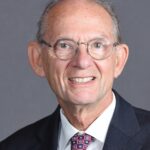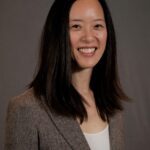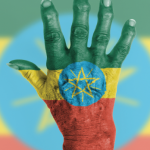The need for better networking and better mentorship was highlighted. Numerous countries and regions have developed such programs, including the North American Young Rheumatology Investigator Forum, the EMEUNET network of young rheumatologists, ArLAR Young Rheumatologist Group, Young PANLAR group of study, and APLAR Young Rheumatologists (AYR), to name a few. To address students before they specialize, EULAR offers free registration and hospitality for annual, weeklong summer camps for medical students and junior doctors; reimbursement for online training courses; and free registrations to its annual congress.
AI will certainly have a role in enhancing training and practice, and practice efficiency, improving disease screening and diagnosis, assisting with documentation so more time can be spent with the patient and less on administrative functions, and improving patient education.
If used intelligently, the electronic medical record could improve clinicians’ practice and quality of life. Training primary care providers can improve the referral process, avoiding unnecessary specialist referrals while assisting them in managing a significant number of patients with rheumatic disease in follow-up. Participants acknowledged the double-edged sword of technology and equity and ethics in healthcare.
A strong point of consensus is that as rheumatologists, we have a responsibility to promote the interests of our patients, healthcare providers and learners to ensure they receive the care, support and resources they need to improve health, career satisfaction and the science of rheumatology. An important aspect of advancing rheumatology is advocacy at every level, whether local, institutional, national or global.
The panelists at the Global Summit emphasized the importance of collaboration, technology and policy advocacy in addressing the workforce shortages, and underscored the common challenges and the need for solutions that consider regional differences.
 Eric L. Matteson, MD, MPH, is the chair of the ACR’s Global Engagement Committee. He is a professor of medicine (emeritus), Mayo Clinic College of Medicine and Science, Rochester, Minn.
Eric L. Matteson, MD, MPH, is the chair of the ACR’s Global Engagement Committee. He is a professor of medicine (emeritus), Mayo Clinic College of Medicine and Science, Rochester, Minn.
 Evelyn Hsieh, MD, PhD, is the past chair of, and advisor to, the ACR’s Global Engagement Committee. She is an associate professor of medicine and epidemiology, Yale School of Medicine/School of Public Health, New Haven, Conn.
Evelyn Hsieh, MD, PhD, is the past chair of, and advisor to, the ACR’s Global Engagement Committee. She is an associate professor of medicine and epidemiology, Yale School of Medicine/School of Public Health, New Haven, Conn.


